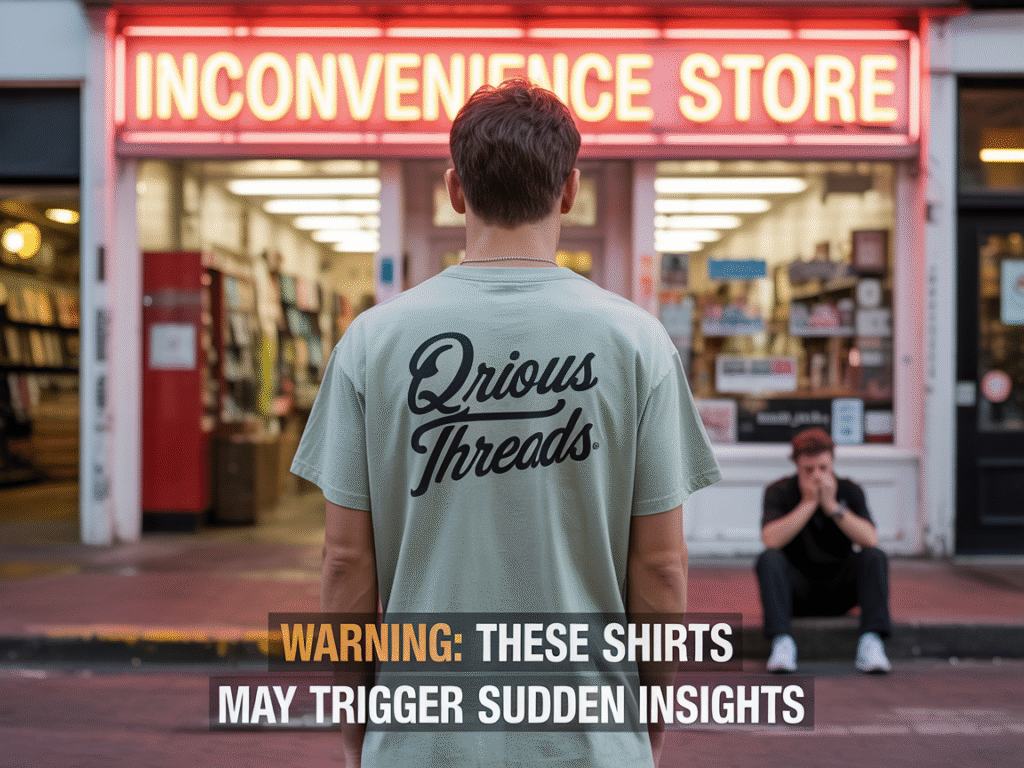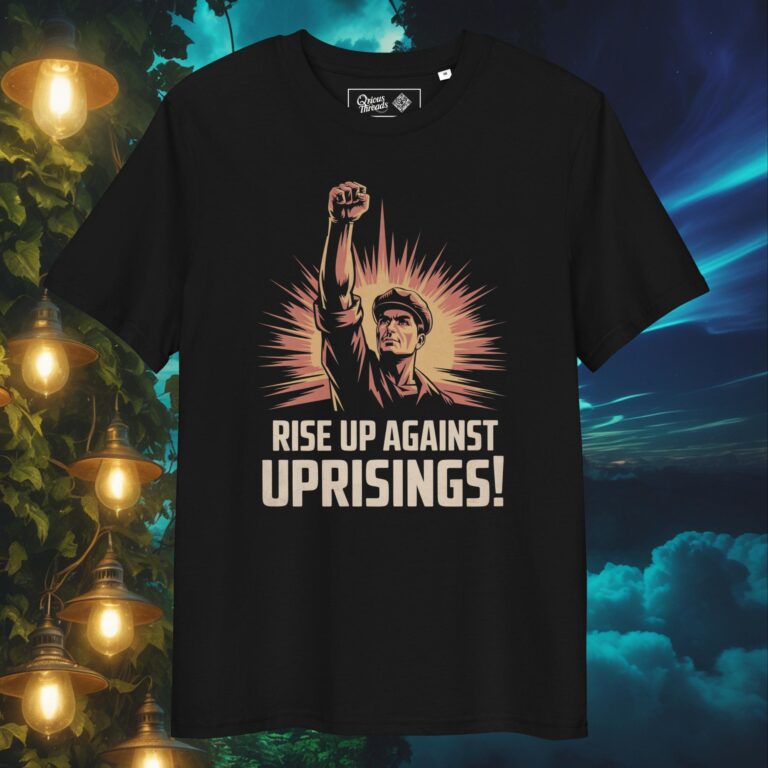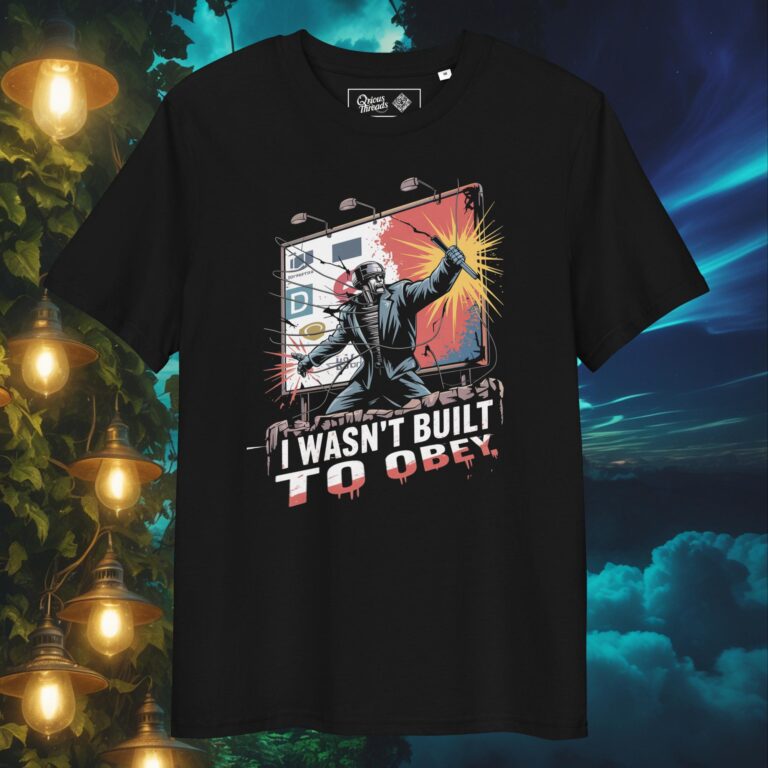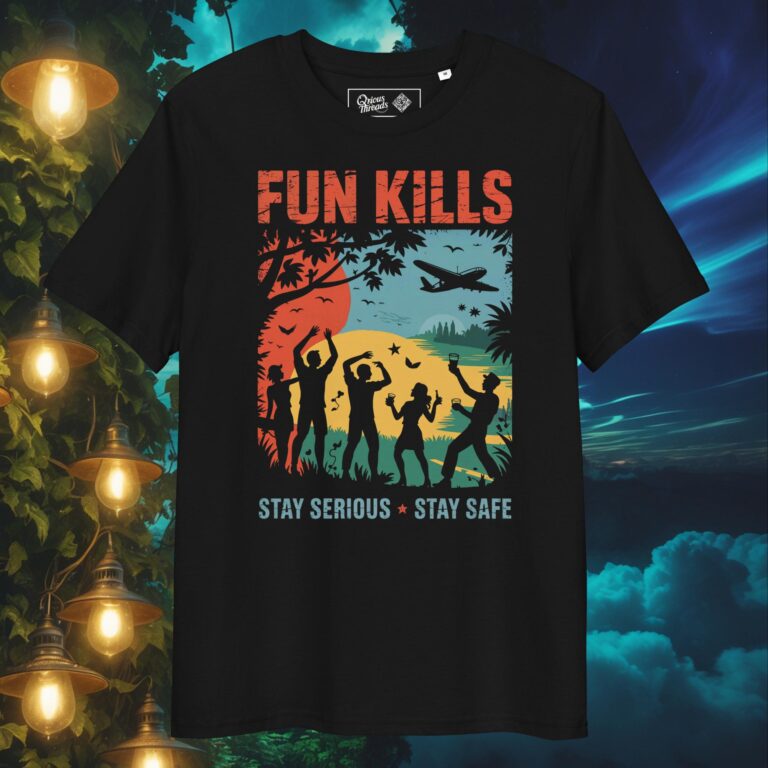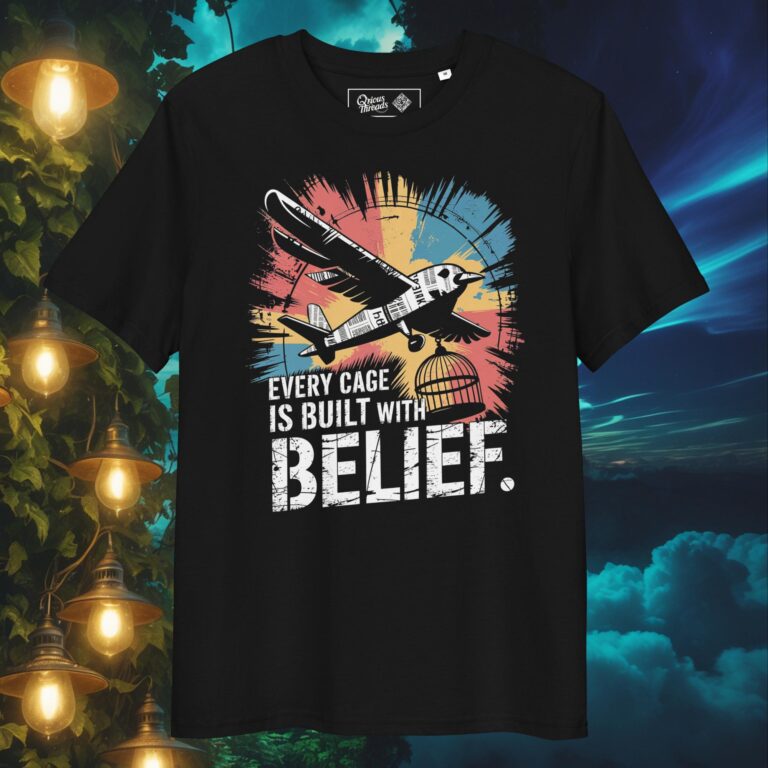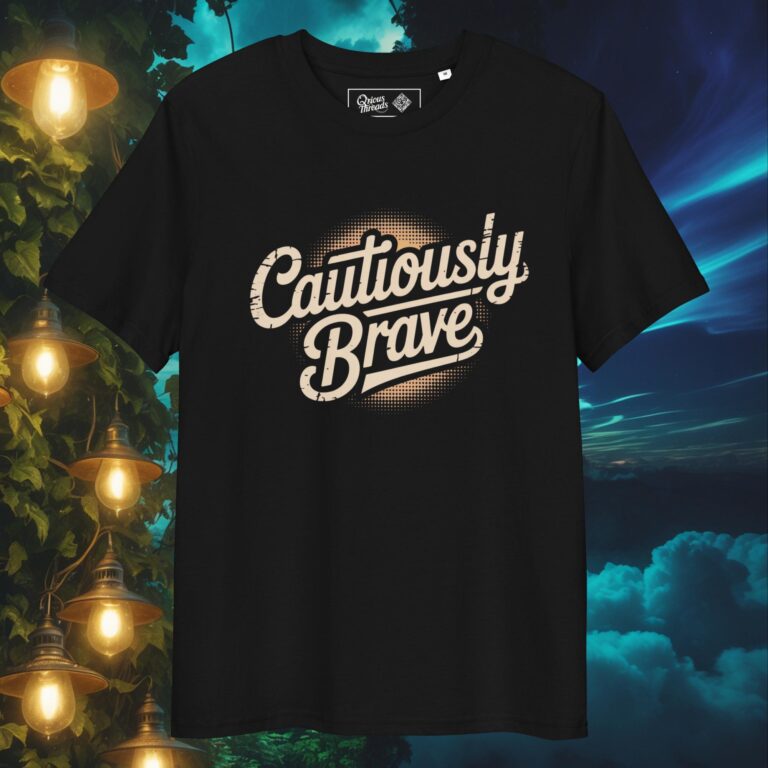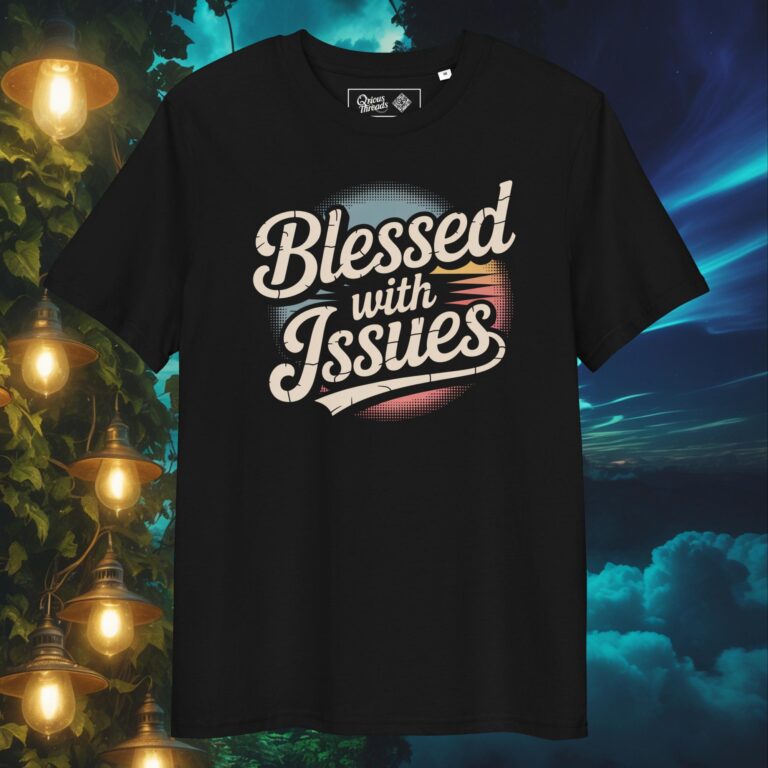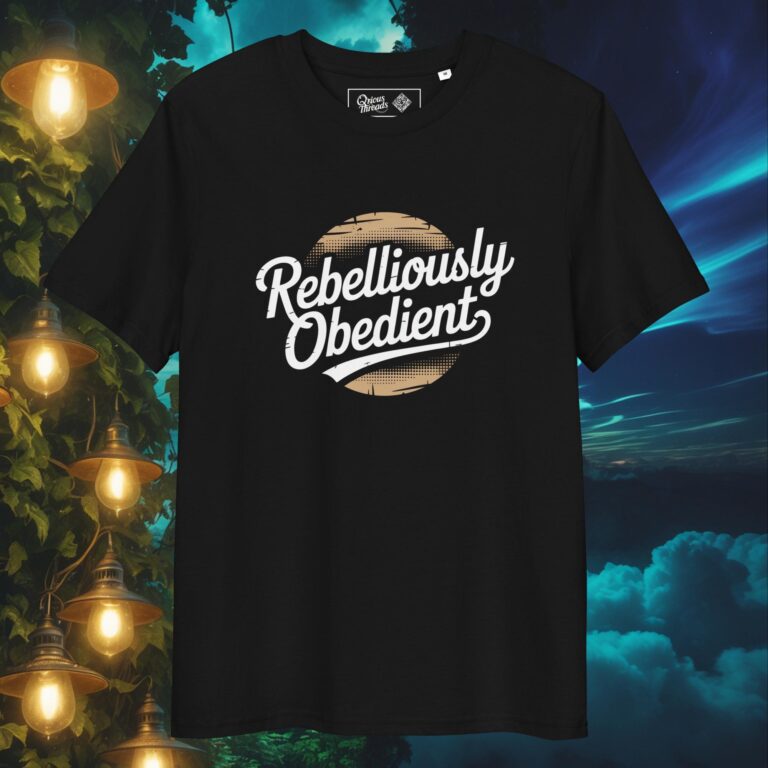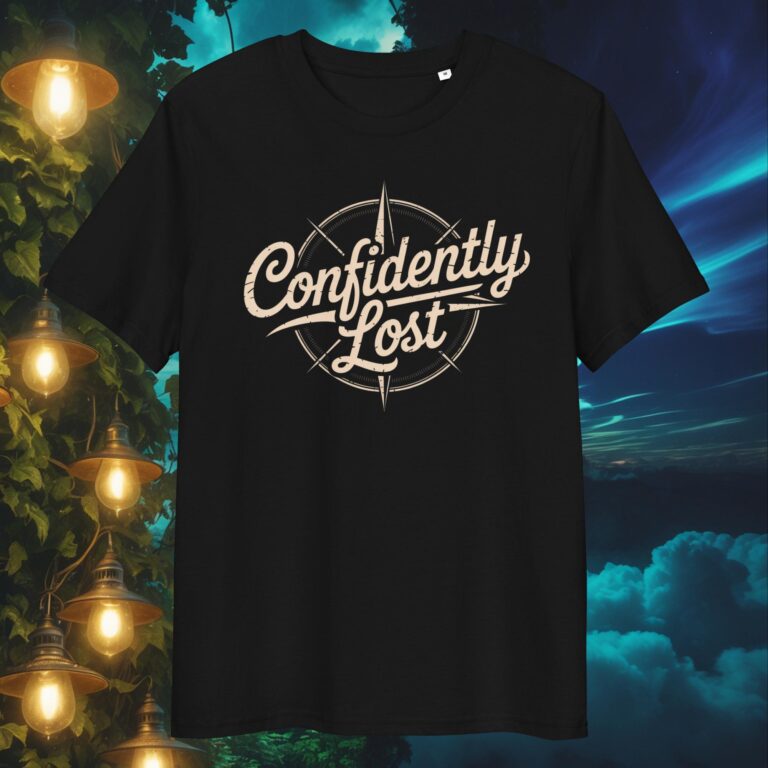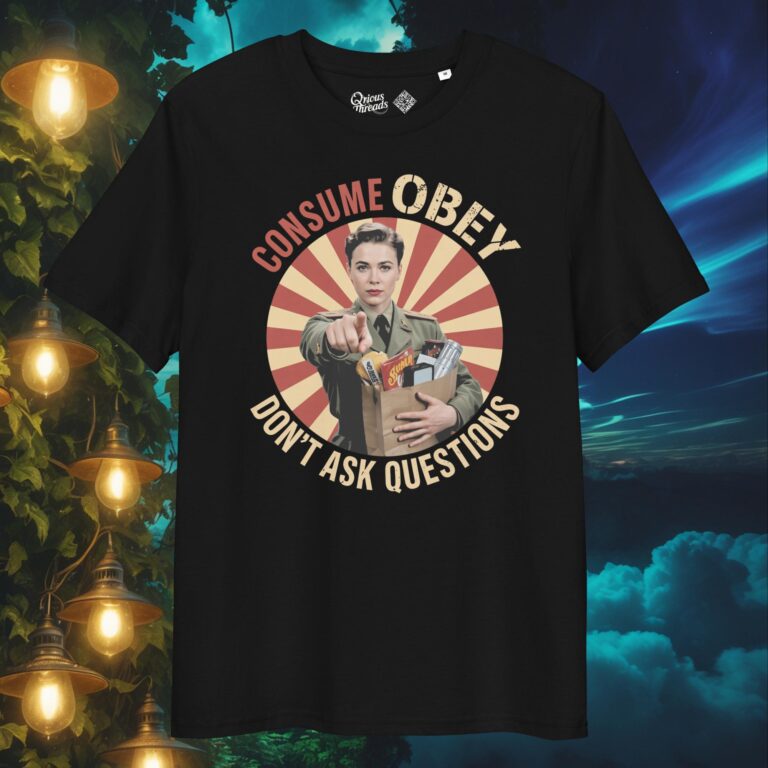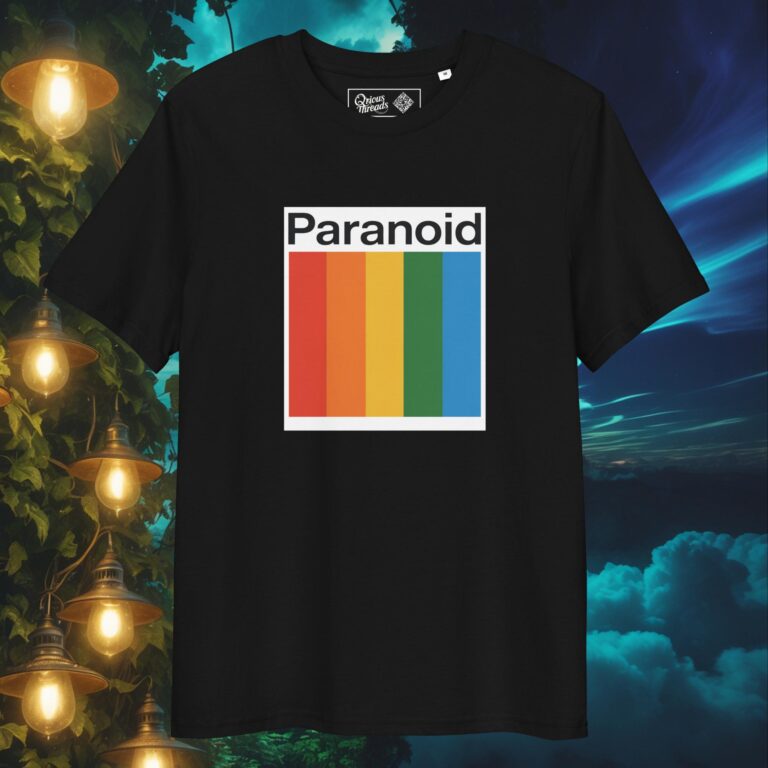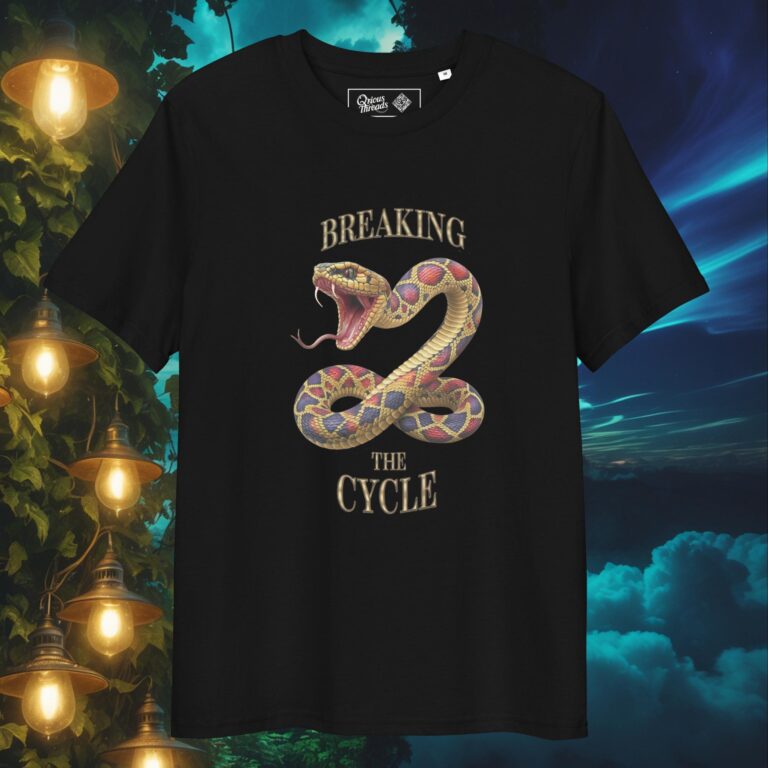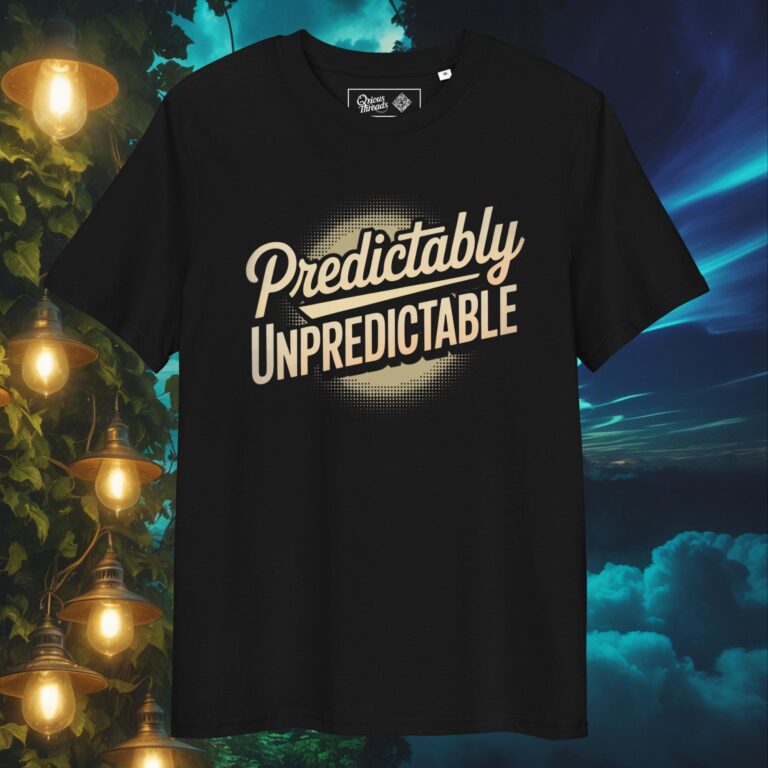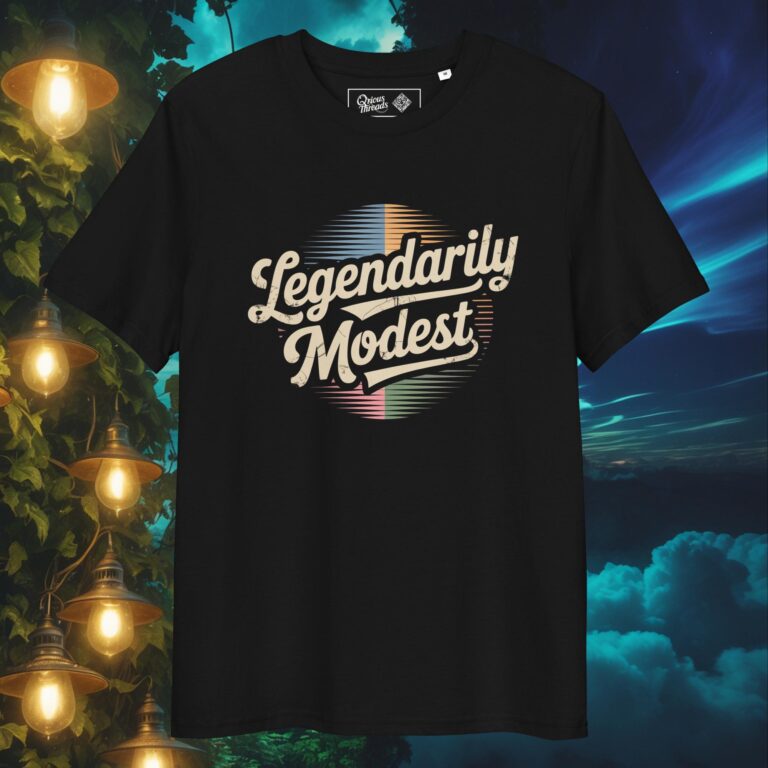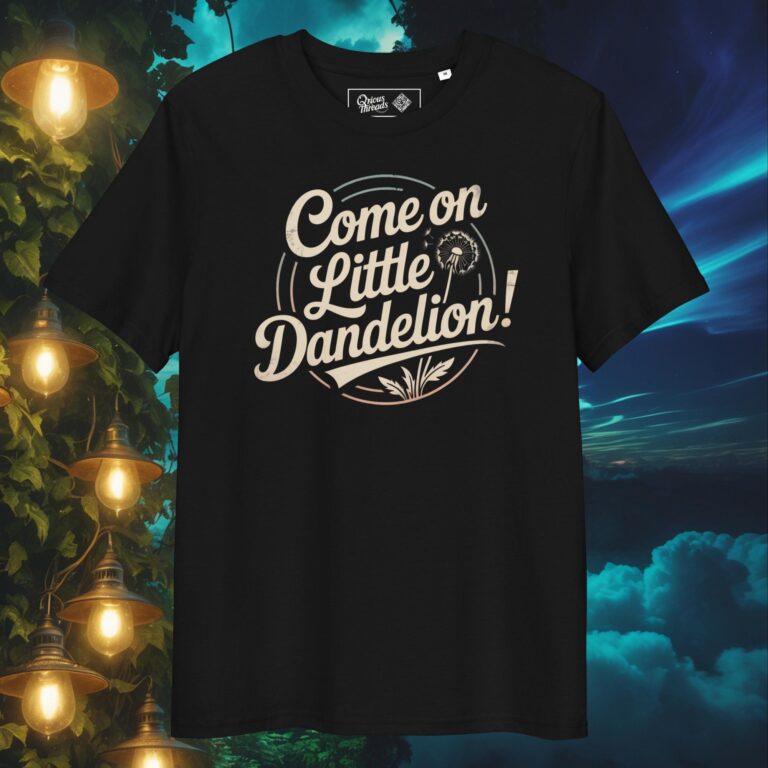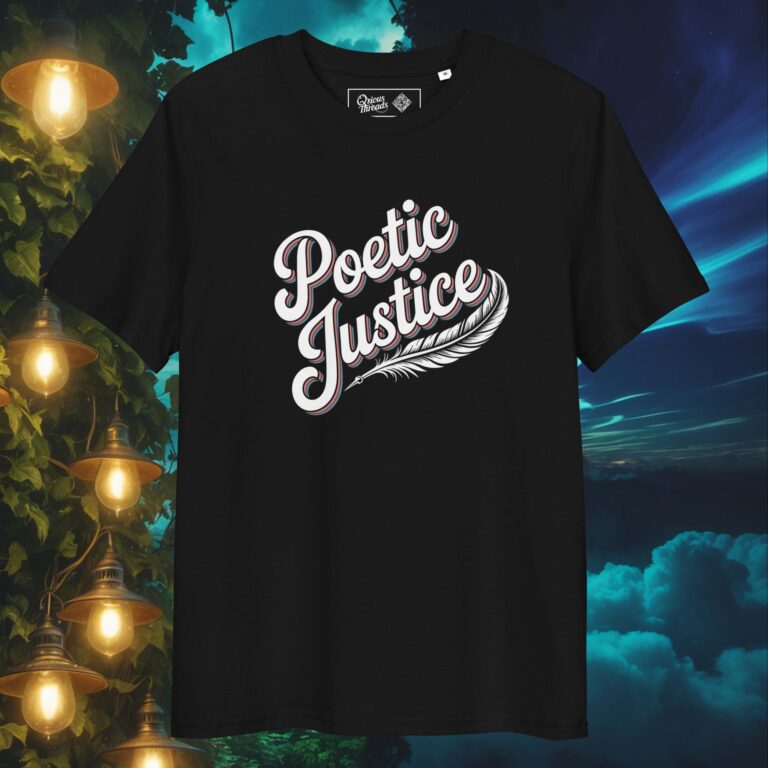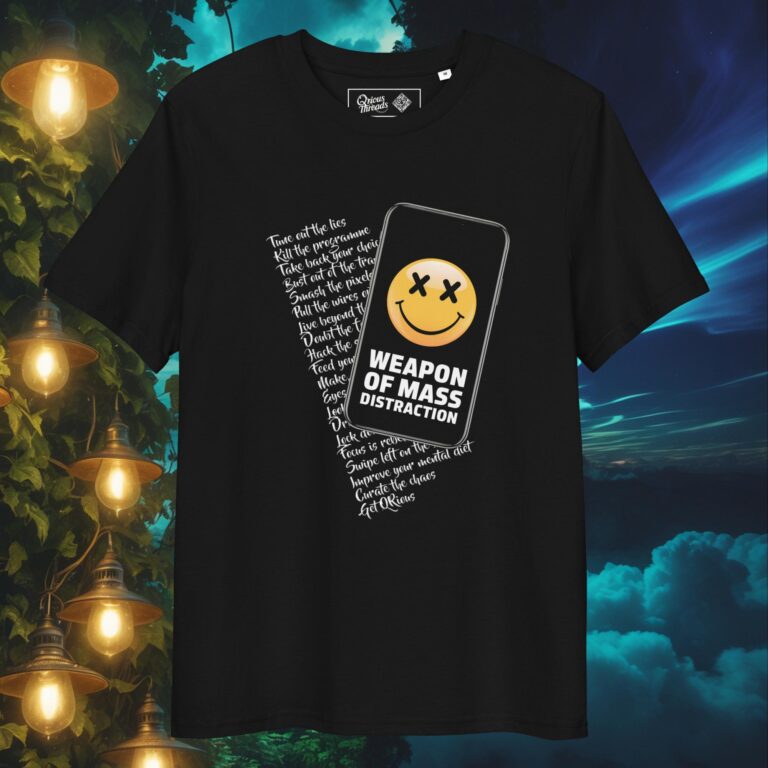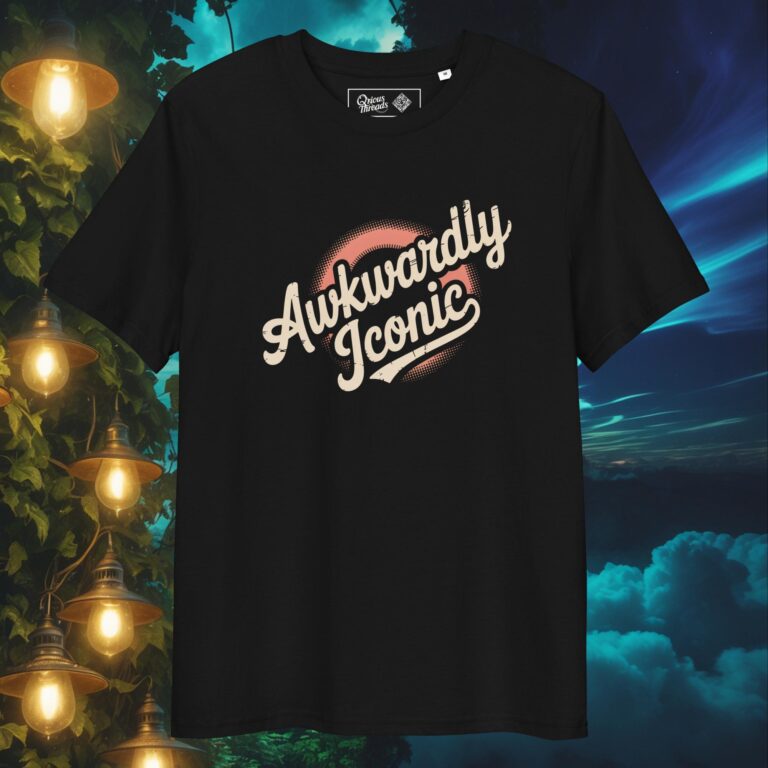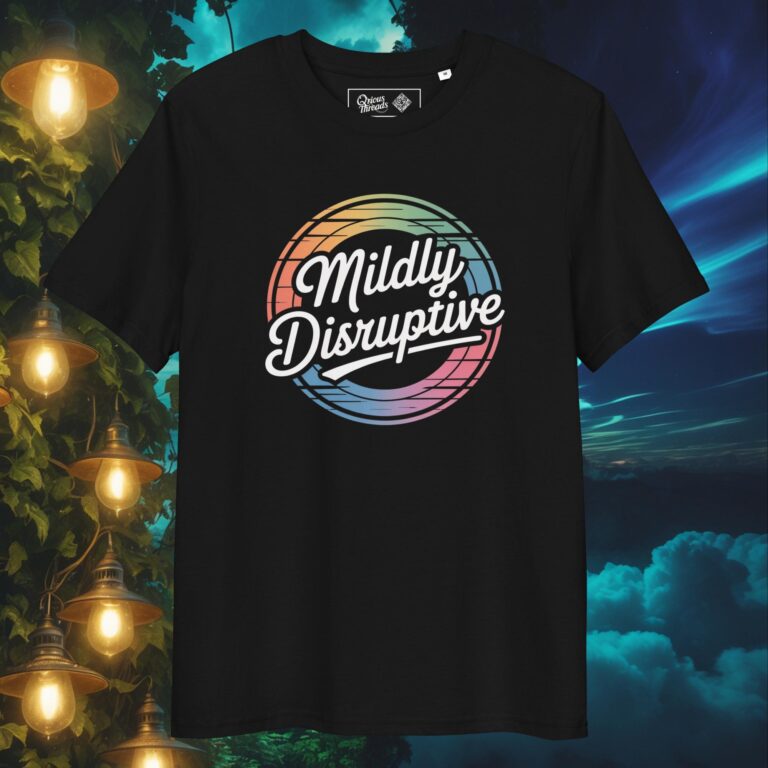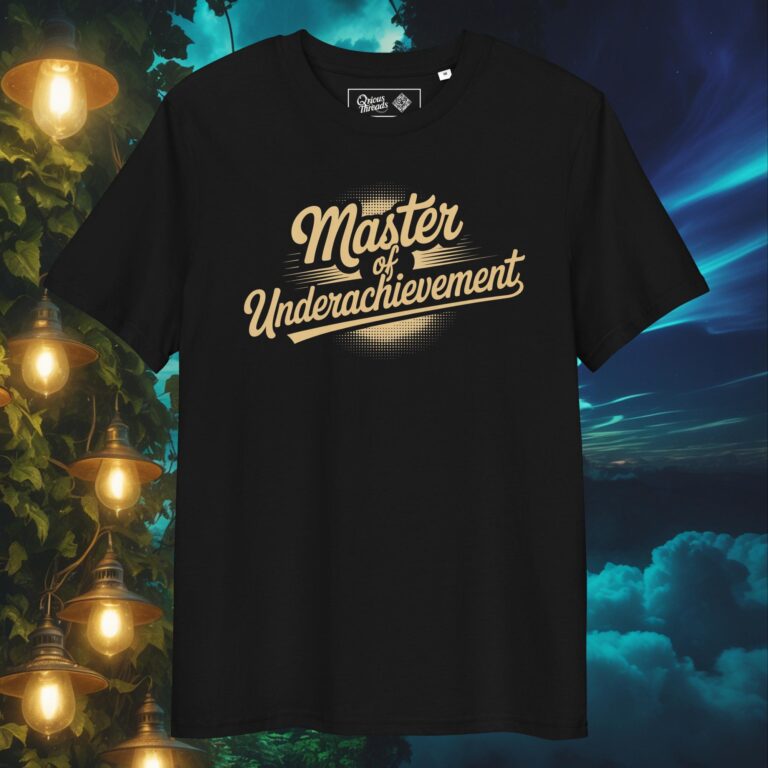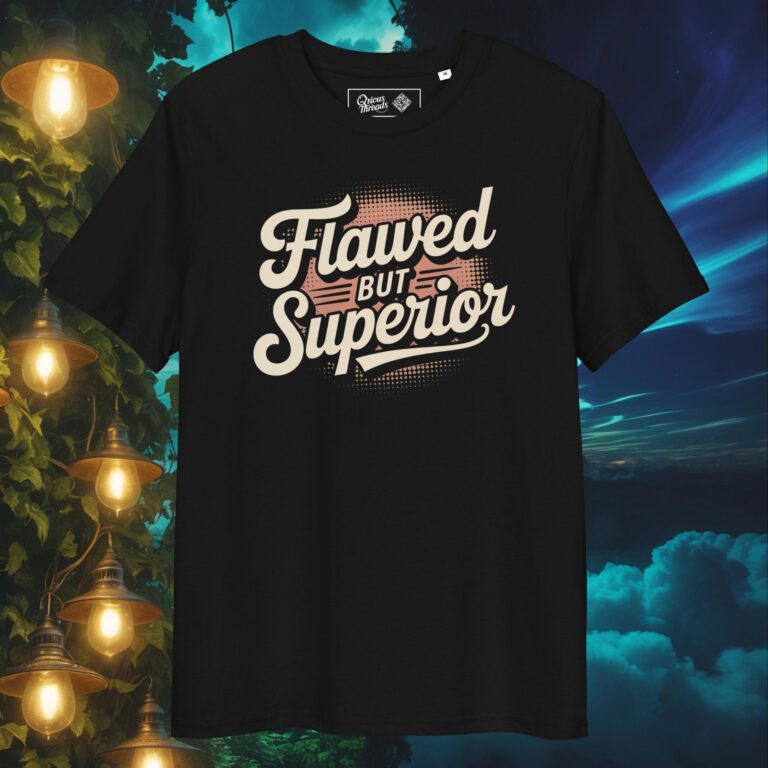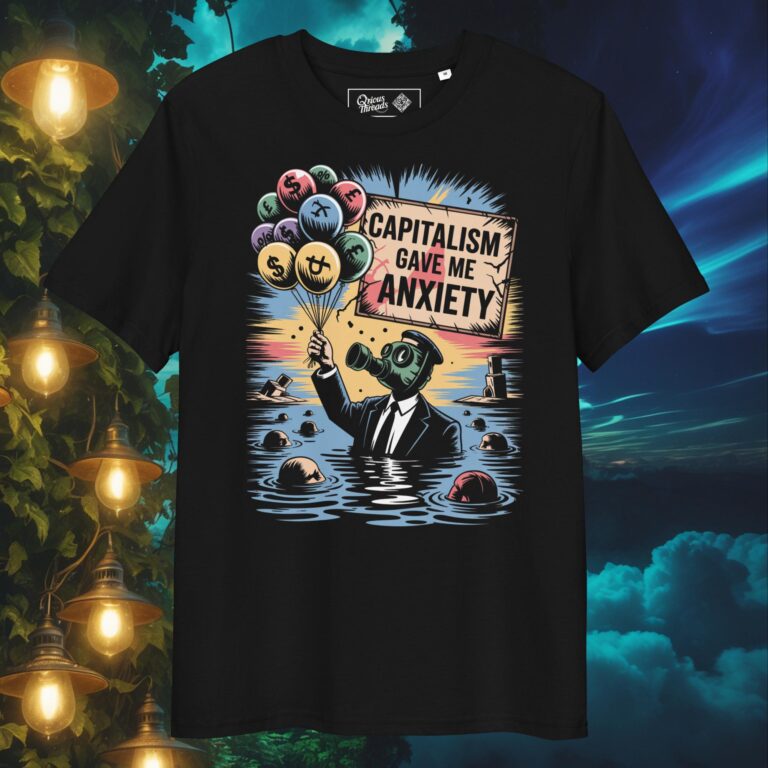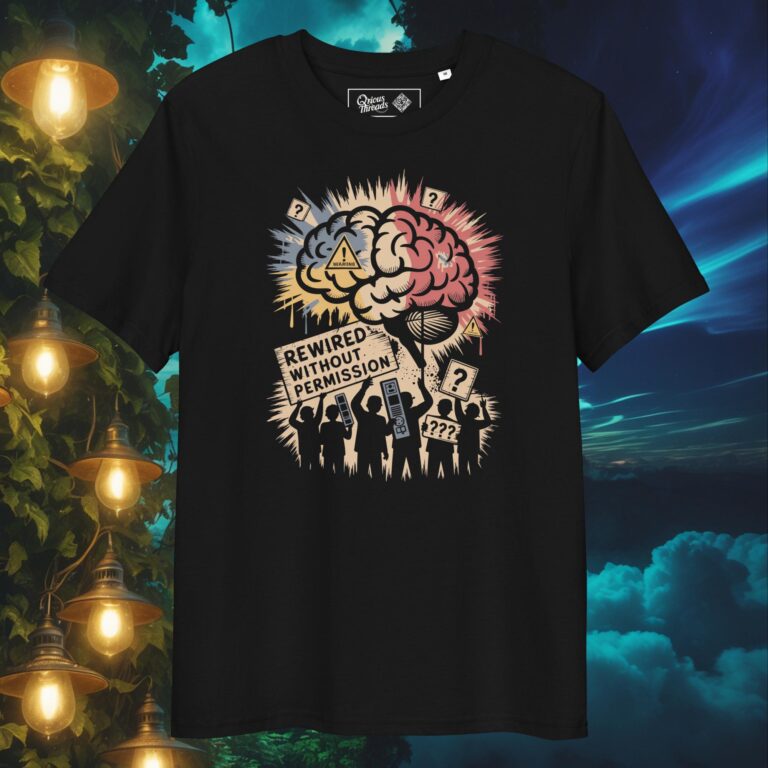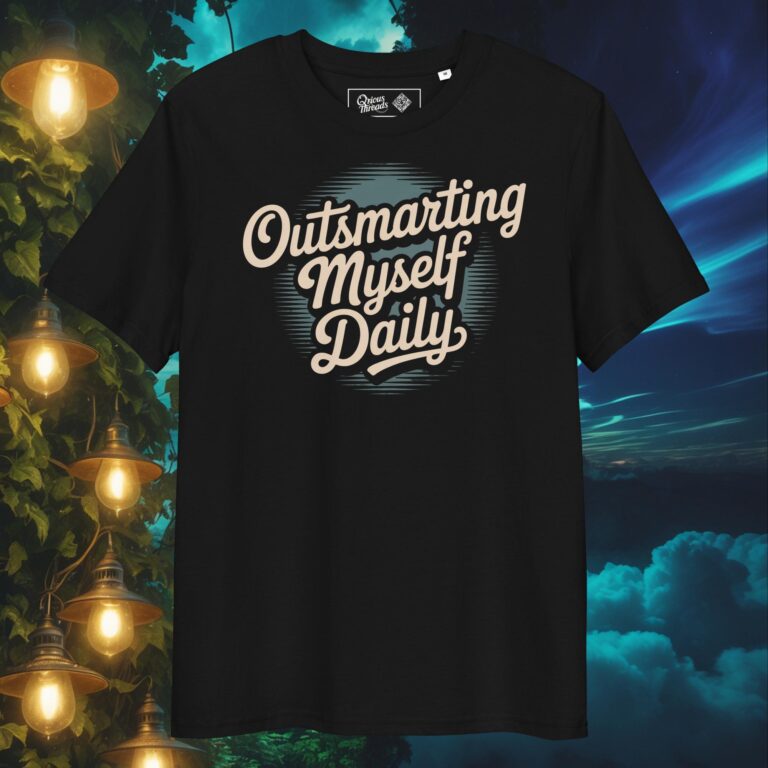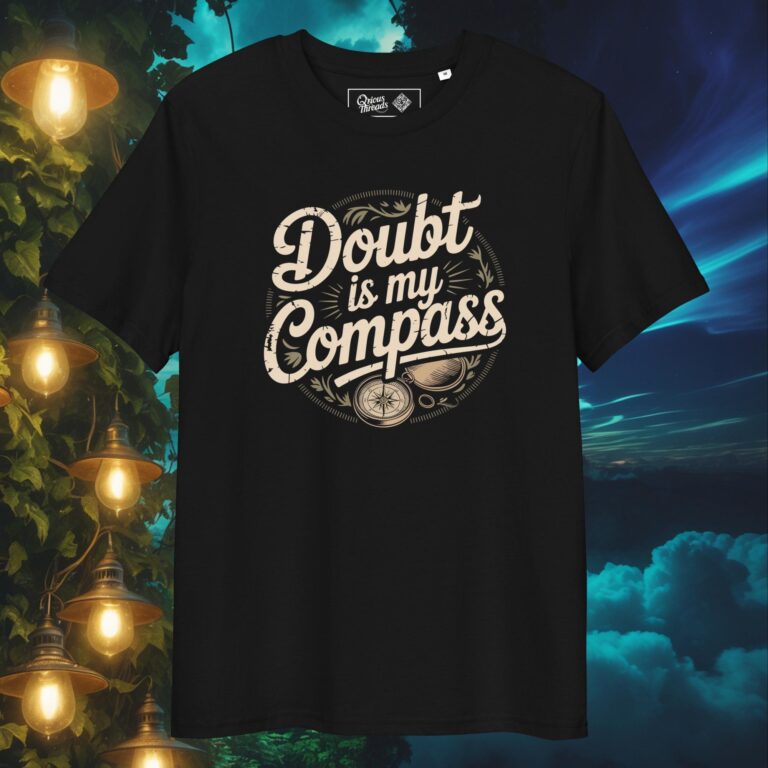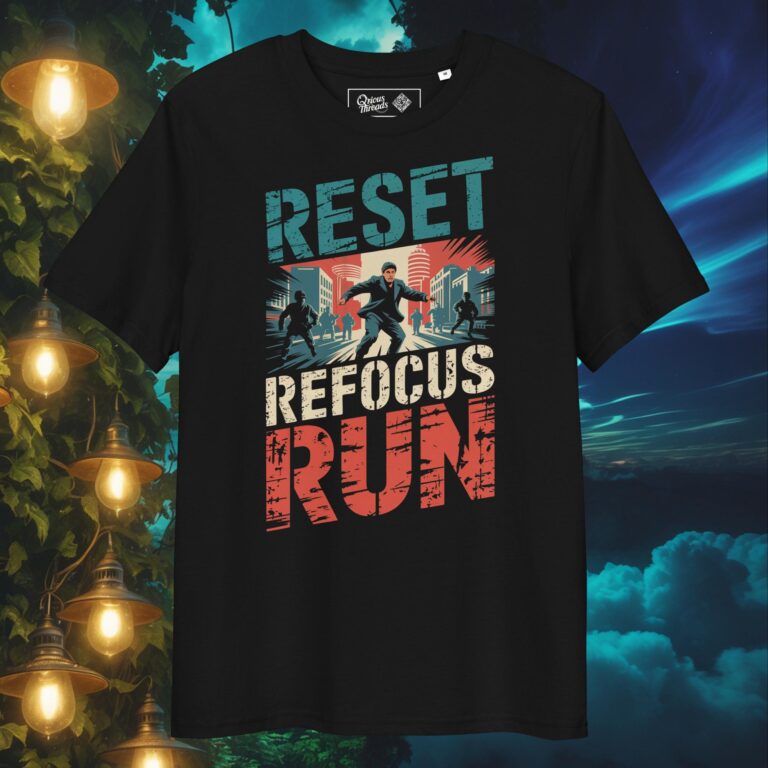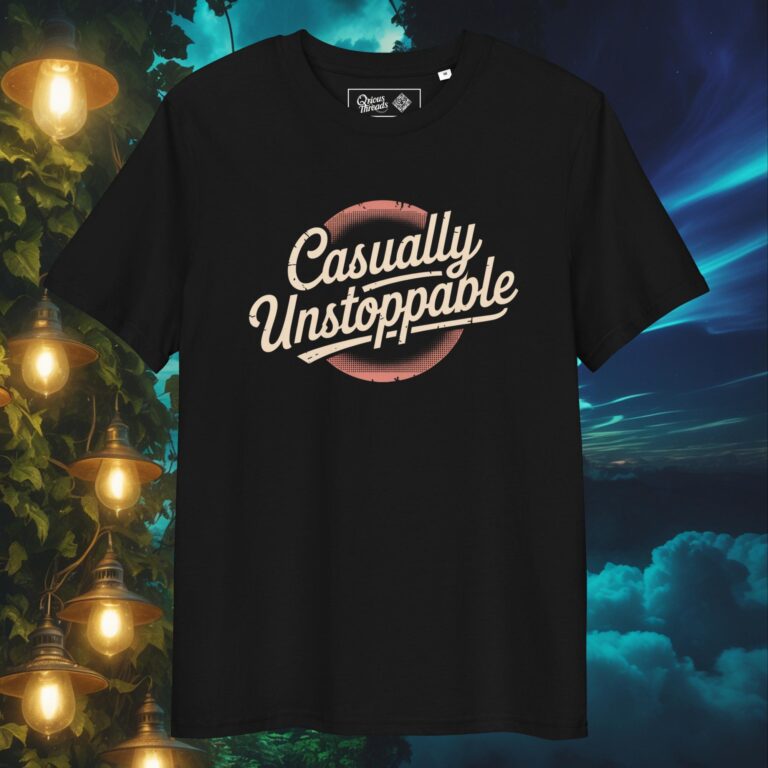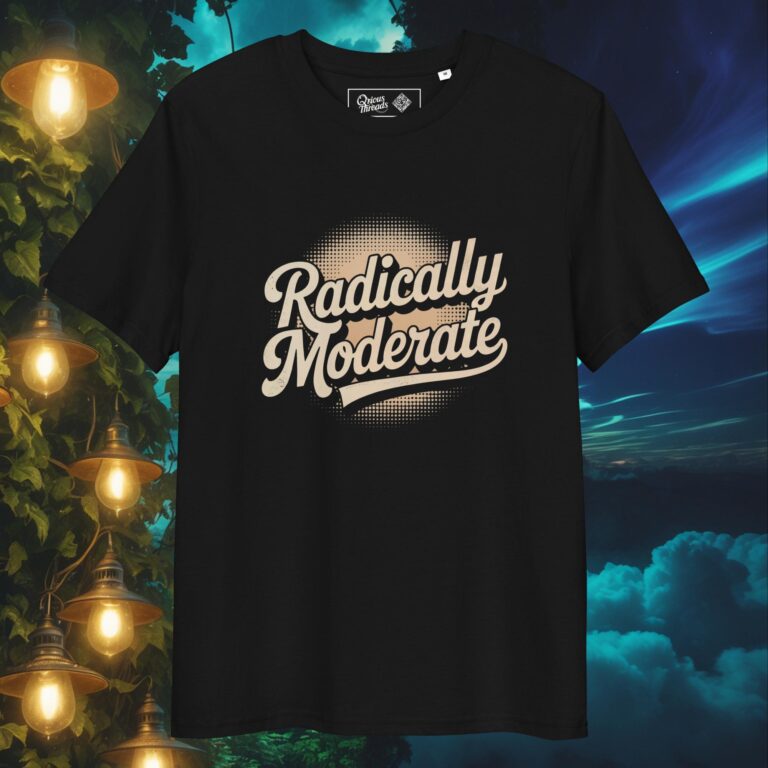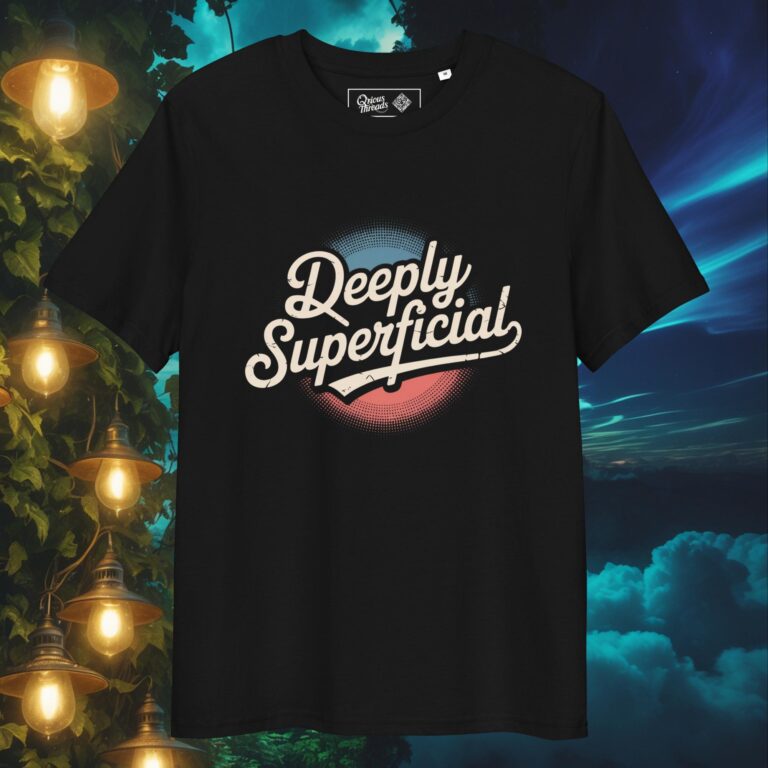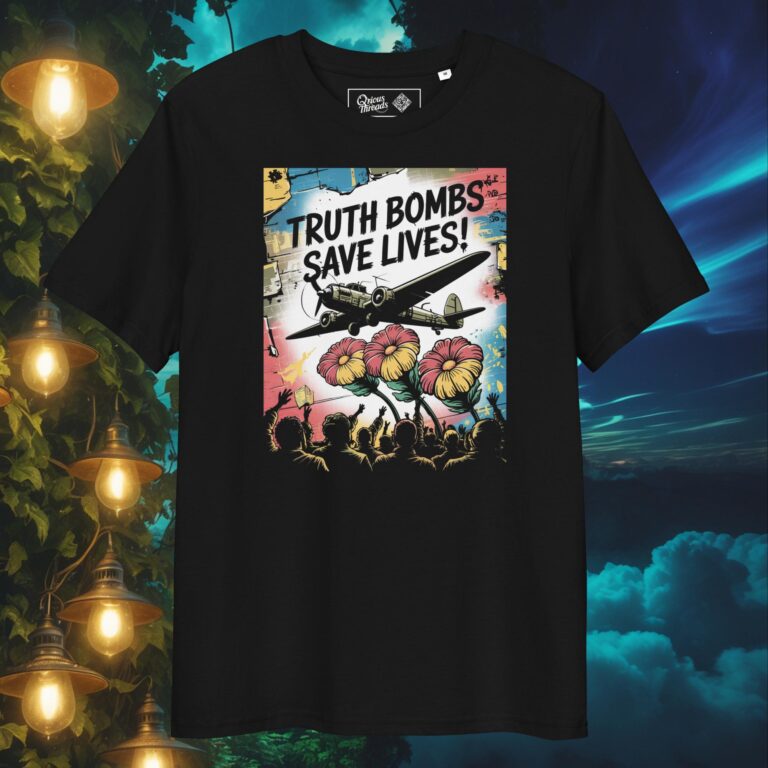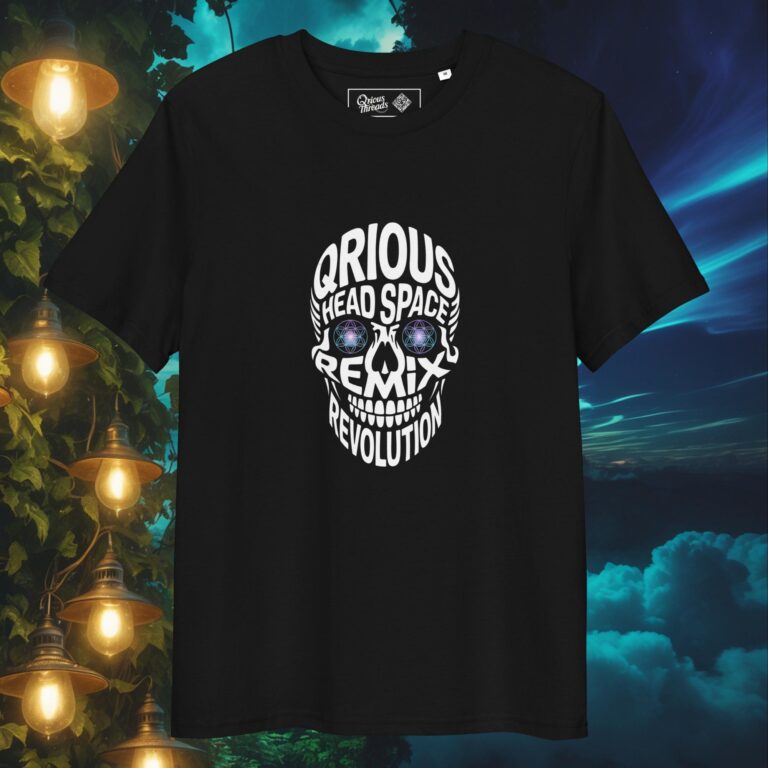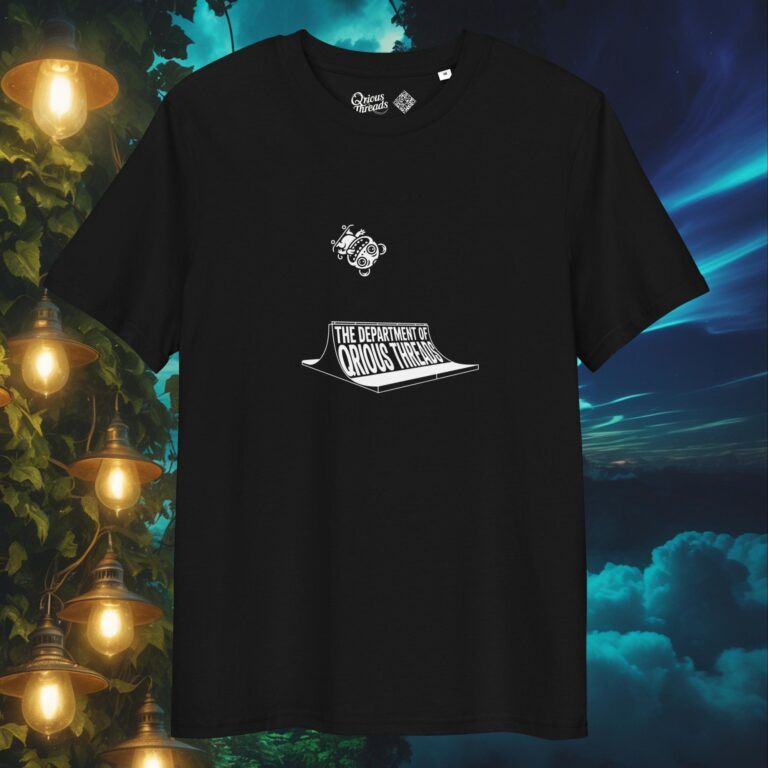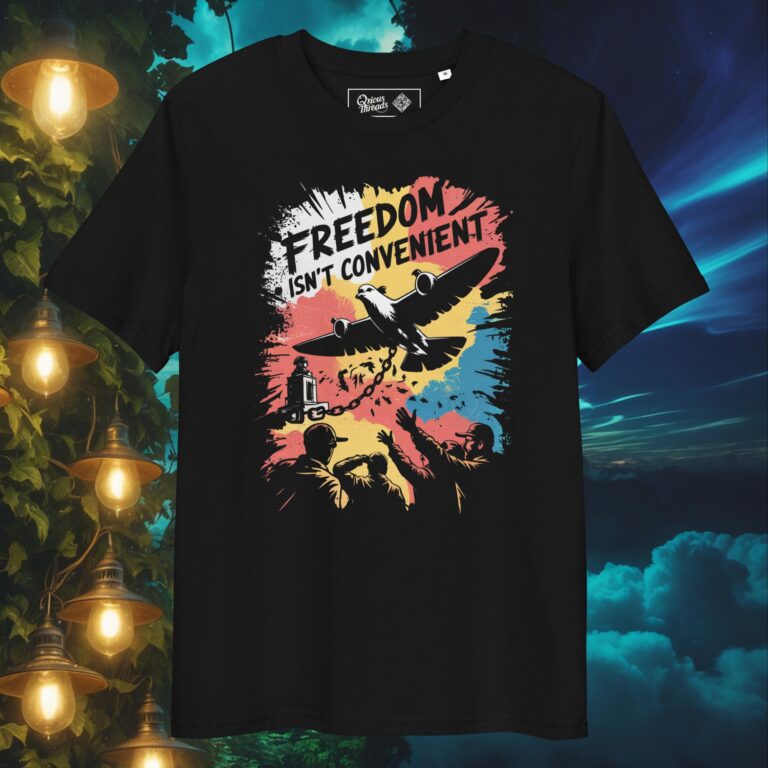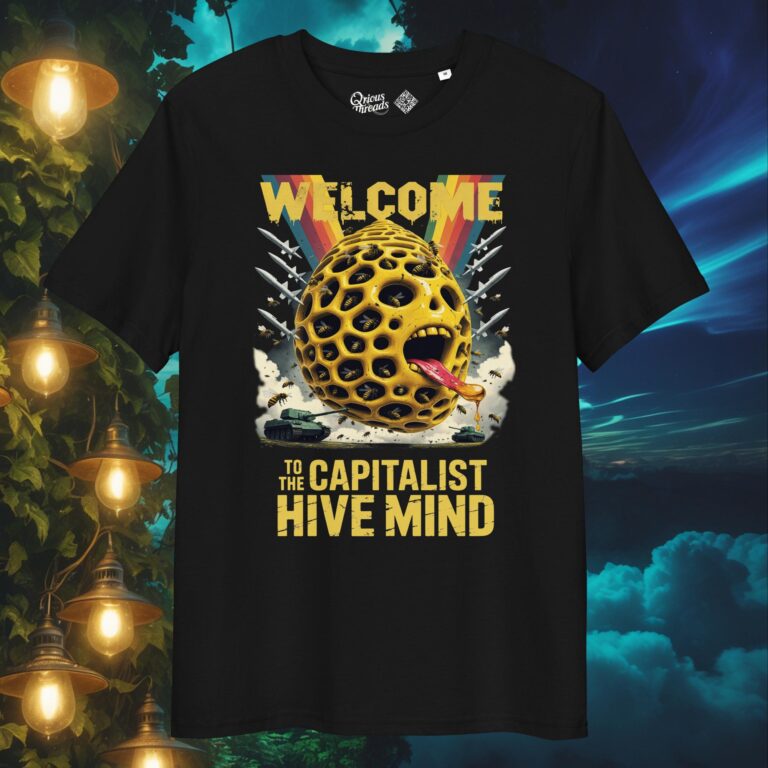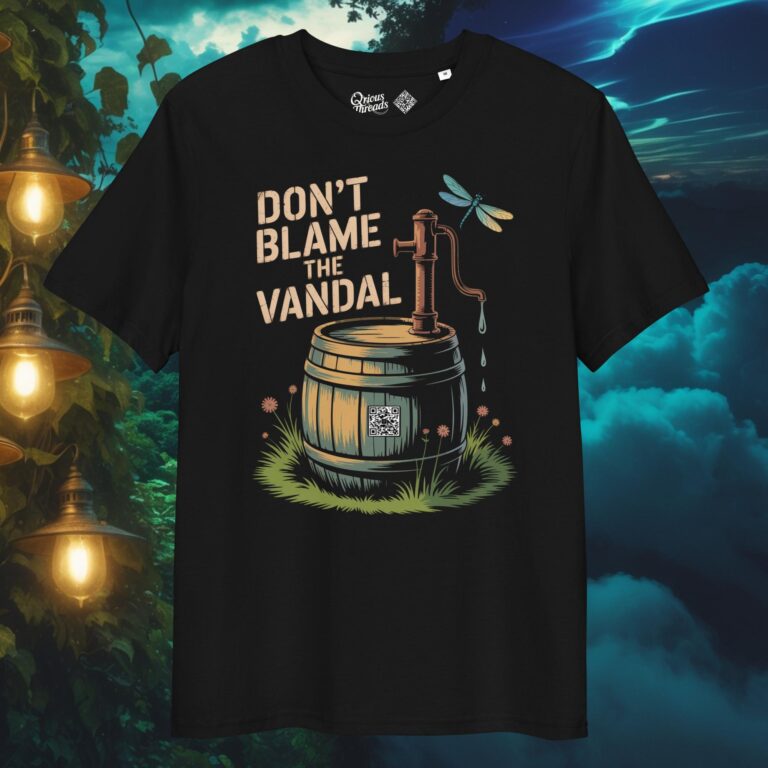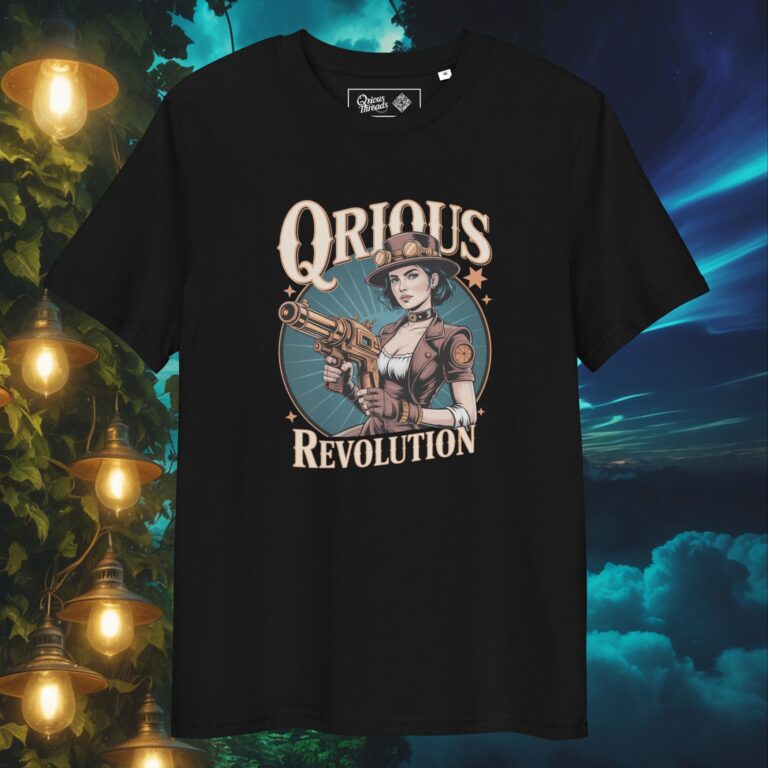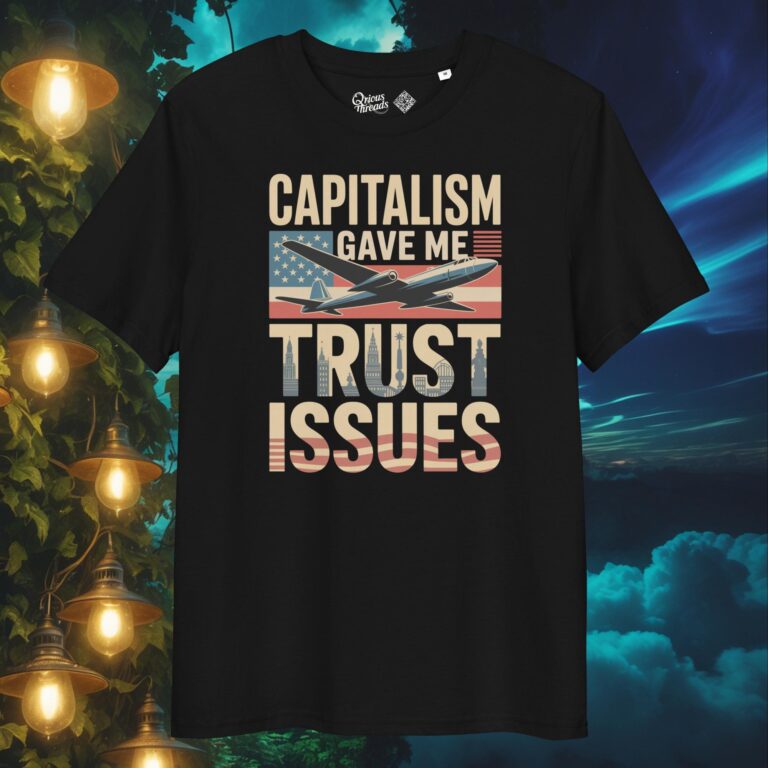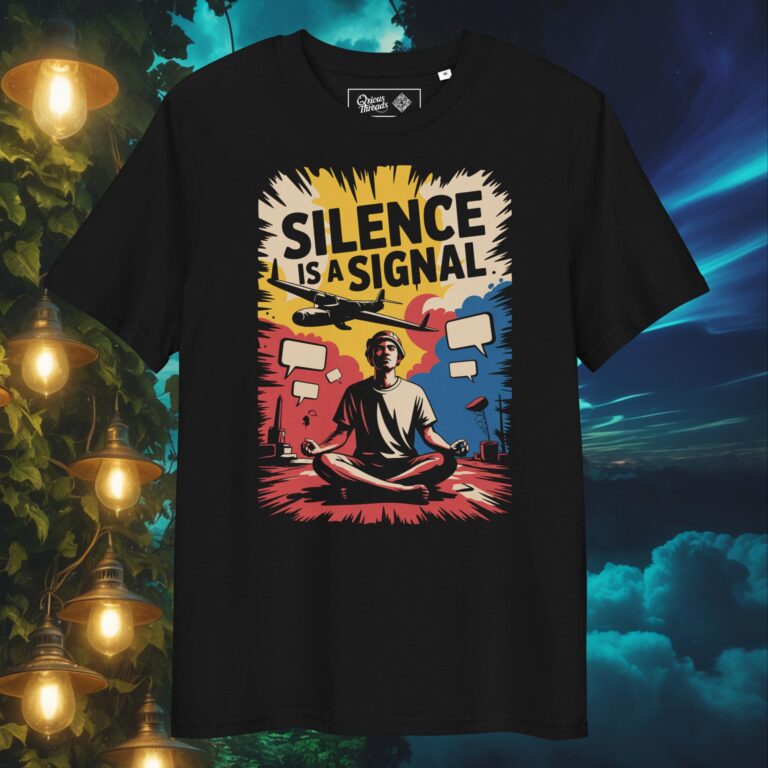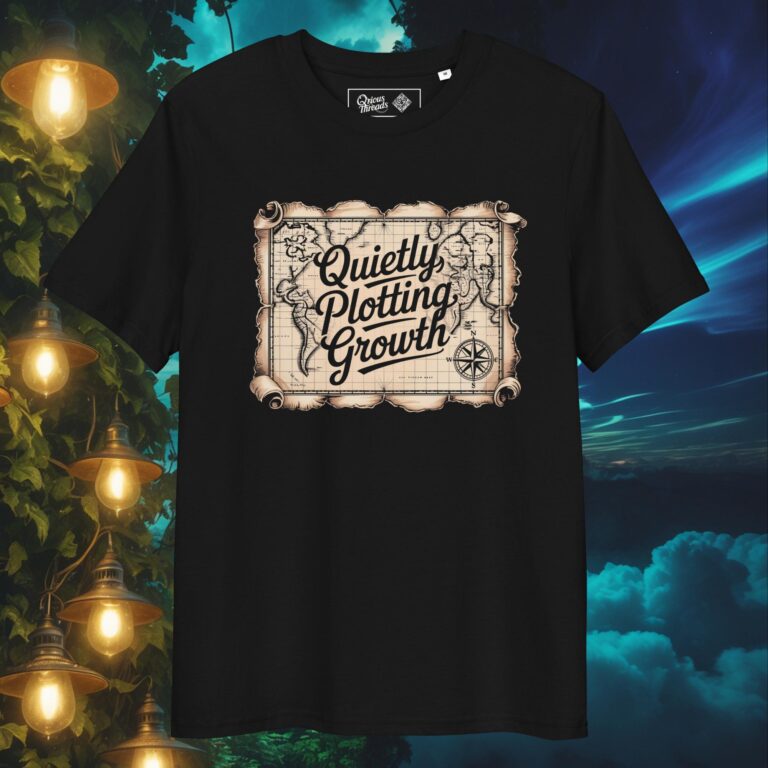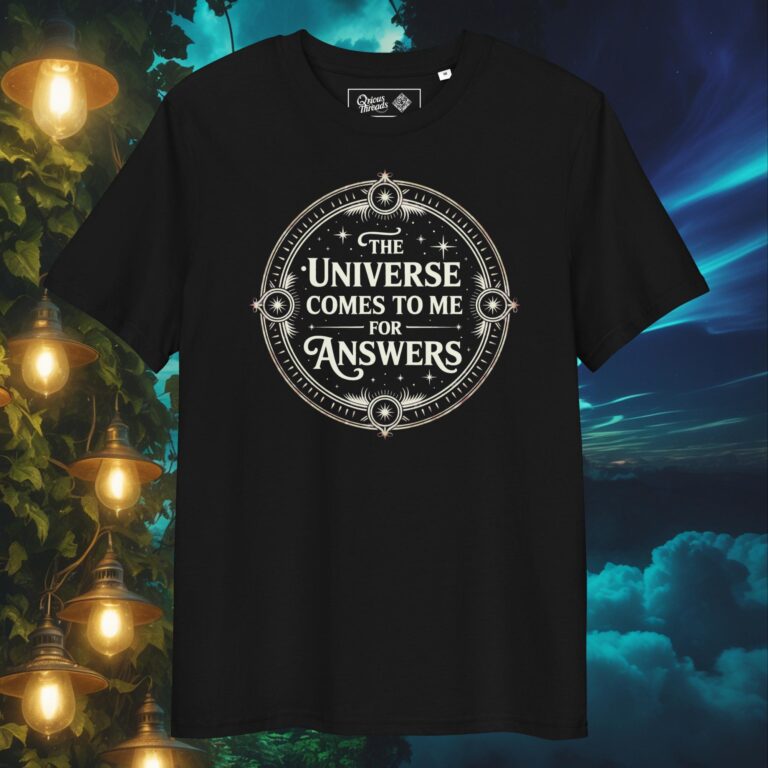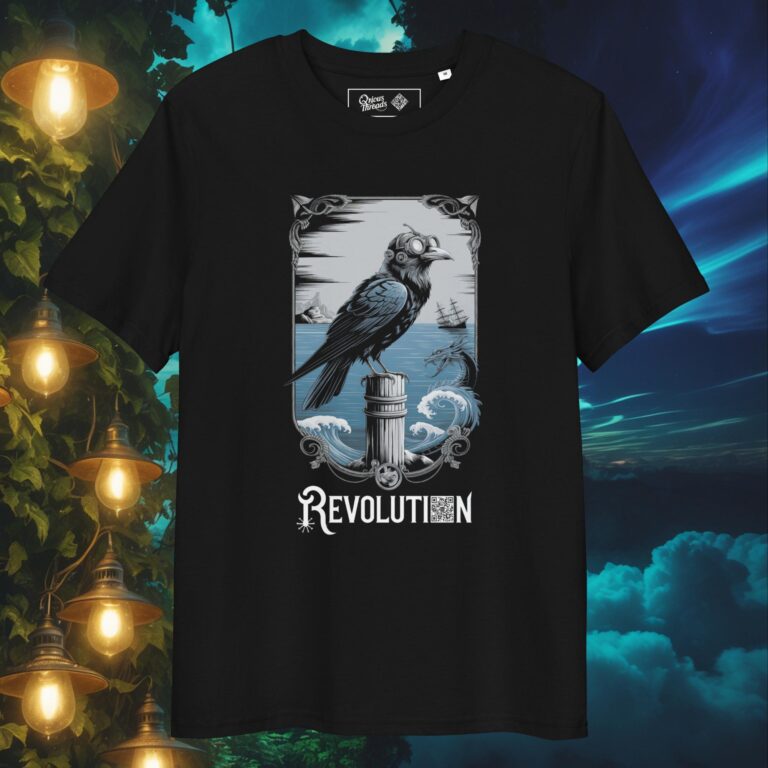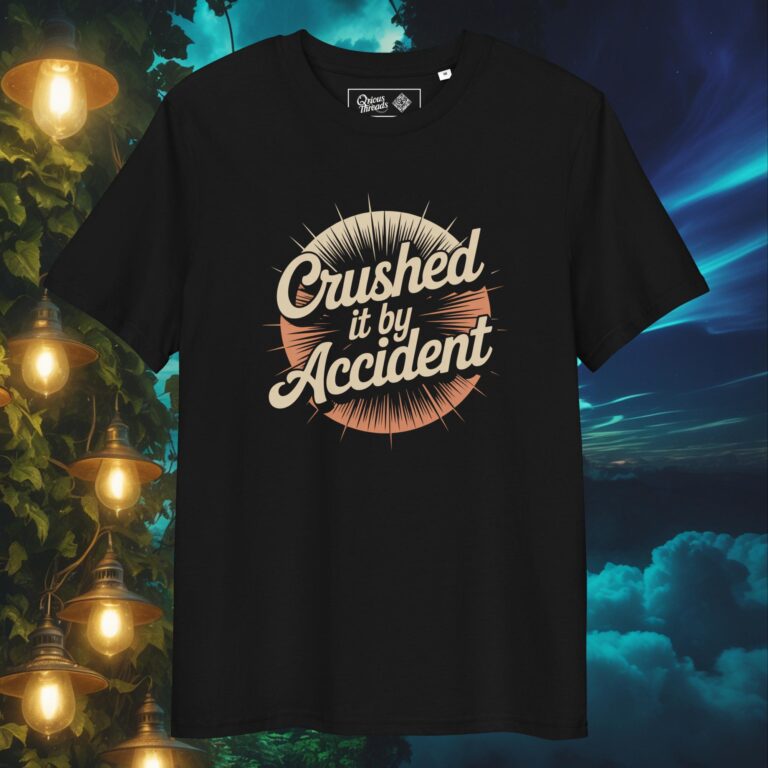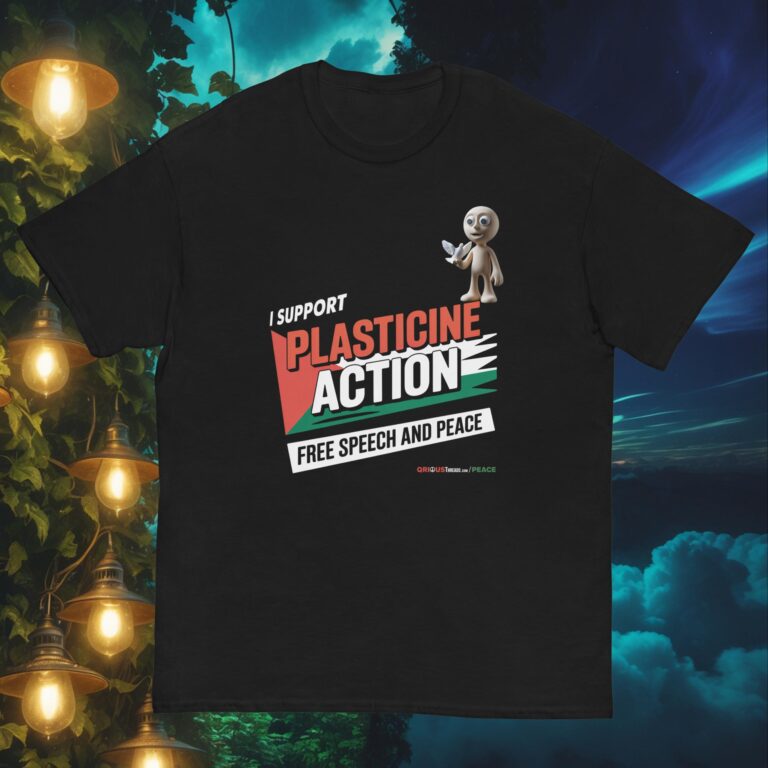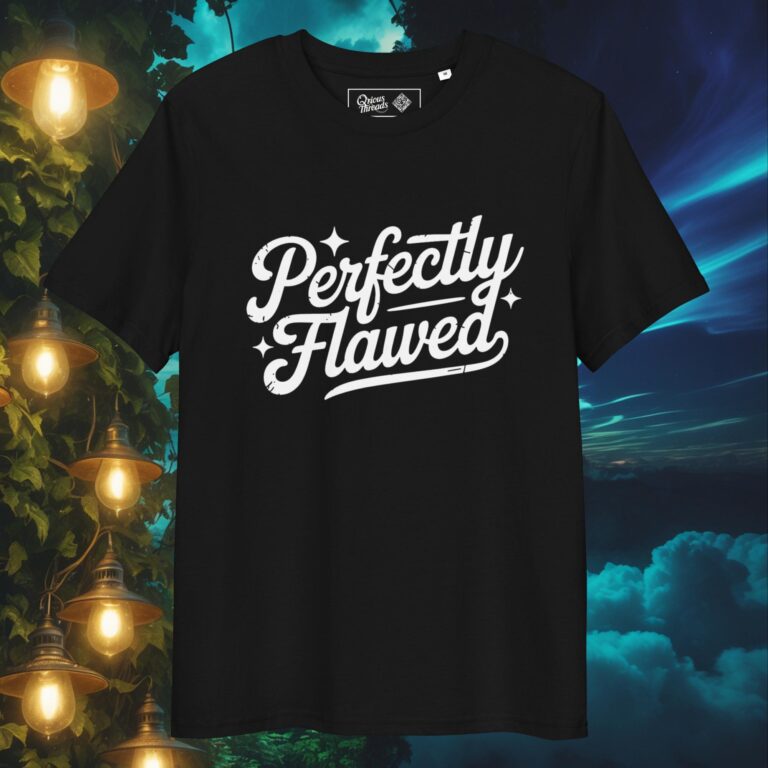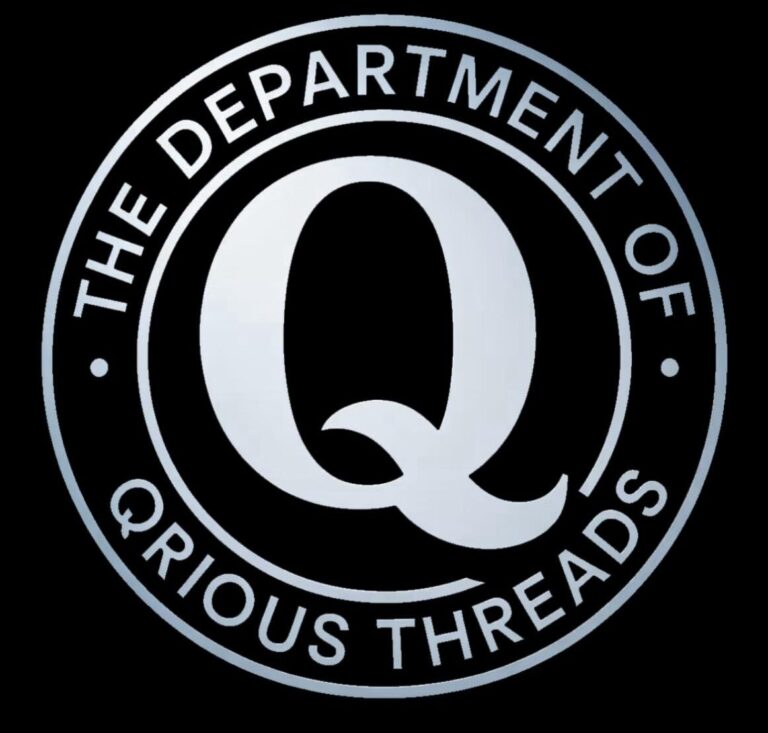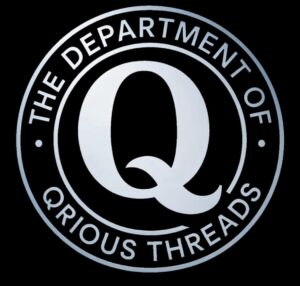“I just wanted a T-shirt. Now I question my entire value system.” – Anonymous Shopper, Brighton
What began as an innocuous streetwear label created by British designer and poet known only as The QR Poet is now at the center of a growing global concern, as neuroscientists, therapists, and unnamed intelligence agencies scramble to understand the rapid cognitive side-effects linked to a phenomenon now known as Neuro-Fashion.
Sources confirm that the Qriously Ironic range — a cryptic collection of black T-shirts bearing statements like “Spiritually Unavailable”, “Therapy Made Me Funnier”, and “Morally Flexible” — is having unexpected neurological effects on wearers and bystanders alike.
“We believe the shirts are somehow bypassing traditional cognitive defences,” said Dr. Simone Alvarez, a neuro-psycholinguist at the Oxford Centre for Unsolicited Studies. “They use irony, philosophy, and minimalist design to implant high-grade existential inquiry directly into the limbic system.”
The QR Poet, whose designs contain embedded QR codes linking to reflective podcasts and whispered metaphysical provocations, has repeatedly denied responsibility for the spiritual crises now reportedly spreading in coworking spaces and niche coffee shops across North America.
“This Isn’t Just Fashion. This is Neuro-fashion.”
Alarmingly, the shirts appear to be triggering what psychologists have labelled “Pattern Interruption Cascades” a sequence of thoughts that begins with chuckling at a T-shirt and ends with the individual questioning capitalism, their relationship with their father, and the illusion of linear time.
“I wore the ‘Your Guru Follows Me’ shirt to Whole Foods,” said one man from Portland. “Five minutes later, I had a vision of my inner child, and somehow forgave my ex.”
Meanwhile, U.S. Senators have called for hearings on the “unregulated philosophical depth” being distributed via cotton. A bipartisan working group is reportedly investigating whether Qrious Threads constitutes a “non-consensual cognitive reformatting operation.”
“This is not a cult,” the QR Poet stated via voicemail, “but it would be a cool one.”
Despite growing calls for a ban, sales have surged, with wearers describing their experiences as “emotionally clarifying” and “like ayahuasca, but with better typography.”
